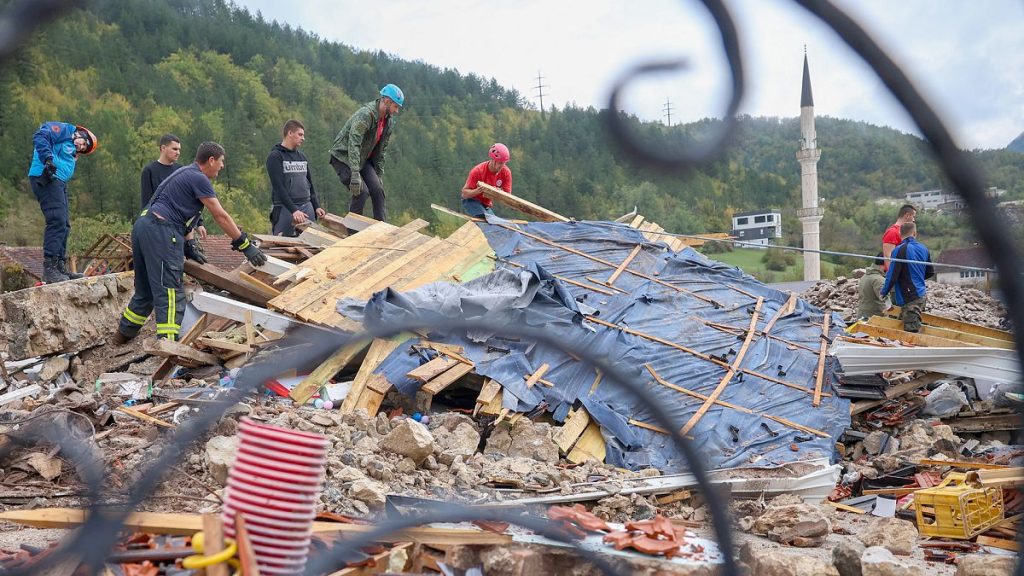In mid-October, a devastating storm hit central and southern parts of Bosnia, causing multiple deaths and widespread destruction of infrastructure. The death toll from the floods and landslides has reached 26 people, with rescue teams still searching for at least one missing person. Torrential rains and winds destroyed houses, roads, and power infrastructure in four municipalities, cutting off access to several villages. Efforts to search for survivors and clear away debris continue, with a collective funeral scheduled for the 19 people killed in the village of Jablanica. The famous Neretva River, a popular tourist destination, has been clogged with waste from the flooding, further adding to the damage caused by the storm.
The southern village of Jablanica was hit particularly hard by the storm, with 19 people losing their lives in the barrage of rocks that buried the town. The community has come together to search for survivors and begin the process of clearing away debris. Residents recall being woken in the middle of the night by the sound of floodwaters sweeping away their property, highlighting the sudden and destructive nature of the storm. The impact of the flooding has been exacerbated by the record temperatures experienced in Bosnia over the summer, with extreme heatwaves causing disruptive blackouts and threatening the country’s agricultural industry. Scientists suggest that the drought caused by the extreme temperatures may have contributed to the intensity of the flooding, as the dry ground was unable to absorb the floodwaters effectively.
More than 10 days after the storm, rescue teams are still working to locate missing individuals and provide support to affected communities. The devastation caused by the floods and landslides has been immense, with entire villages being left in ruins. The collective funeral for the victims in Jablanica is a solemn reminder of the toll that natural disasters can take on communities. The clogging of the Neretva River with waste from the flooding further compounds the challenges faced by residents, as the once pristine waterway is now filled with debris. Efforts to restore normalcy and rebuild damaged infrastructure are ongoing, with a focus on providing aid to those who have been most severely affected by the storm.
The impact of the storm on Bosnia highlights the vulnerability of countries to extreme weather events and the importance of preparedness and resilience. The record temperatures experienced over the summer, followed by the sudden onset of torrential rains and winds, serve as a stark reminder of the unpredictable nature of climate change. The destruction caused by the storm will have lasting effects on the affected communities, requiring both immediate relief efforts and long-term recovery plans. The support of local and international organizations will be crucial in assisting with the rebuilding process and helping residents to recover from the trauma of the disaster.
As Bosnia grapples with the aftermath of the storm, efforts are being made to assess the extent of the damage and provide assistance to those in need. The collaborative response from local communities, emergency services, and volunteers has been essential in the search and rescue efforts and the clearing of debris. The community spirit that has emerged in the face of tragedy is a testament to the resilience and strength of the Bosnian people. The challenges posed by the clogged Neretva River and the widespread destruction of infrastructure will require coordinated efforts to restore normalcy and support those most affected by the storm. The lessons learned from this disaster will inform future disaster preparedness and response efforts to mitigate the impact of similar events in the future.


